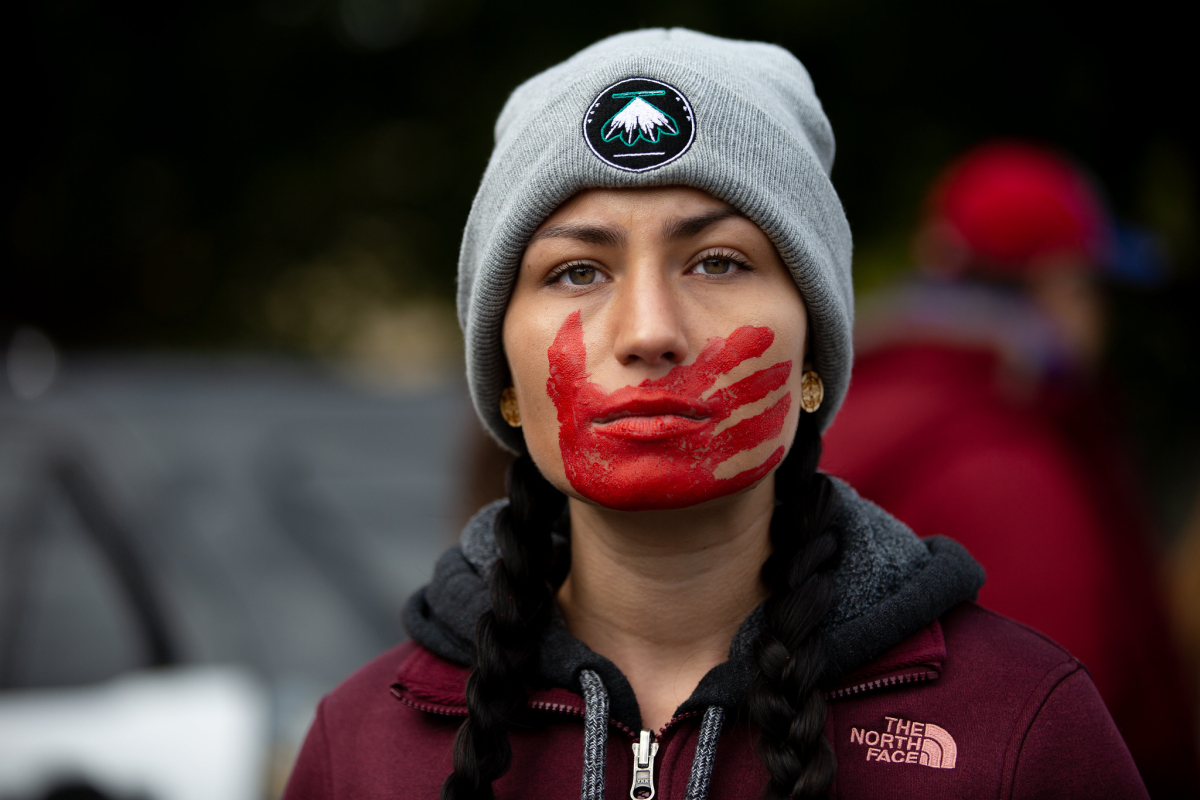Support strong Canadian climate journalism for 2025
The Native Women’s Association of Canada is urging Prime Minister Justin Trudeau to take Indigenous women’s issues seriously this time around.
The election, which resulted in a minority for Trudeau, shows that Canadians, and Indigenous women in particular, are not confident enough to give the Liberals a majority government, said Lynne Groulx, CEO of the Native Women’s Association of Canada (NWAC).
“I believe the timing is very critical right now, where the government does need to act and pay attention,” said Groulx. “If they don't, there will be pressure not only from advocacy groups and the human rights experts, but from Canadians as well as from mainstream society.”
NWAC and activists have panned the Liberals’ federal action plan on Missing and Murdered Indigenous Women and Girls (MMIWG), released earlier this year, as thin on details. The document outlines how the Trudeau government aims to implement the 231 calls to justice from its 2019 national inquiry into MMIWG. Trudeau has also pledged $2.2 billion in new spending over five years to address the calls to justice.
But Groulx said the action plan does not include a clear implementation strategy, and that NWAC was disappointed to learn the money behind it would be given out through a project funding structure.
The department of Crown-Indigenous Relations and Northern Affairs did not respond to a request for comment by the deadline.
“We don't want to see this issue being dealt with as a project. This is a very serious matter, and it needs a serious investment of resources in a comprehensive way, and we don't see that in the plan,” said Groulx.
A recent incident highlights one of the dangers Indigenous women face. Just last week, a worker was removed from the LNG Canada project site in Kitimat, B.C., the Vernon Morning Star reported after MMIWG activists raised concerns about his background check, or lack thereof.
The man had been found guilty of assaulting women in three separate incidents in 2013, 2017 and 2019, and is currently facing a charge of assaulting a police officer.
Matriarchs in Training (MIT), a group advocating for Indigenous women based in Terrace, B.C., took action to have him removed from the work camp, but this underscores the ever-present danger of such sites, said Gladys Radek, a longtime MMIWG activist and founder of MIT.
“I just reviewed the calls to justice last night, I couldn't sleep, and realized that absolutely none of those calls to justice have been implemented,” said Radek.
The national inquiry found resource development projects and the worker camps that accompany them are a threat to Indigenous women.
These camps, which can house thousands of workers — often men — for projects like LNG infrastructure, can lead to an increase in sexual assault, abductions, violence, and drugs and alcohol available to teenagers, said Radek.
“We hear horror stories about how men are driving around in vehicles after they're done work and stalking the women and girls,” she said. “There's been several near-abductions right here in this small community of Terrace.”
Affordable housing is also a key issue for women and girls, said Radek. She says when man camps come to the area, many women and girls are pushed out onto the streets because of skyrocketing rents and a higher cost of living.

Despite a lot of disappointment and broken promises and trust, Groulx is still hopeful progress on the MMIWG calls to justice can be made with the government, but Radek is not so sure.
“It's not like (Trudeau) doesn't know what's going on,” she said. “He's committing systemic racism by not doing anything about it.”
NDP MP Leah Gazan said she also lacks faith in the Liberal government to address violence against Indigenous women and girls.
To show they are serious, the first most obvious step, she says, is to implement the 231 calls to justice.
Crown-Indigenous Relations Minister Carolyn Bennett’s decision to appoint a non-Indigenous man, Bruno Steinke, as executive director of the Missing and Murdered Indigenous Women and Girls Secretariat also “needs to change,” Gazan said.
Groulx agreed. The national inquiry report says Indigenous women should be at the centre of decision-making tables because “our grandmothers, our mothers, our sisters are experts in the area,” she said.
“If you make a mistake, OK, everybody does make a mistake, then correct it and correct it more quickly.”
Groulx said there are many achievable actions the government could take in the short term to address the crisis of violence faced by Indigenous women. She acknowledges all 231 legal imperatives cannot be tackled at once, but immediately taking concrete action on some of those calls to justice is doable.
She said the government can end the political marginalization of Indigenous women by providing seats for them at decision-making tables. A similarly easy step would be to “stabilize the funding of Indigenous women’s organizations,” something she said would make a big difference and is doable in the short term.
Groulx said she thinks Canadians are starting to take reconciliation seriously and hopes this can help pressure the government, but it’s a long road.
“I've been beating the same drum for 16 years and we seem to be getting nowhere and not being heard,” said Radek. "I just urge the government to start listening to us ... there's no reason, there's no excuse for this systemic racism to continue.”
“People are aware, people are waking up, and it's time that they started taking a good look at what's going on around them. And if you see injustices happening, deal with it, don't just say, ‘Oh, that's not up to me.’ It's up to everybody. It's up to everybody.”
Natasha Bulowski / Local Journalism Initiative / Canada’s National Observe






Comments